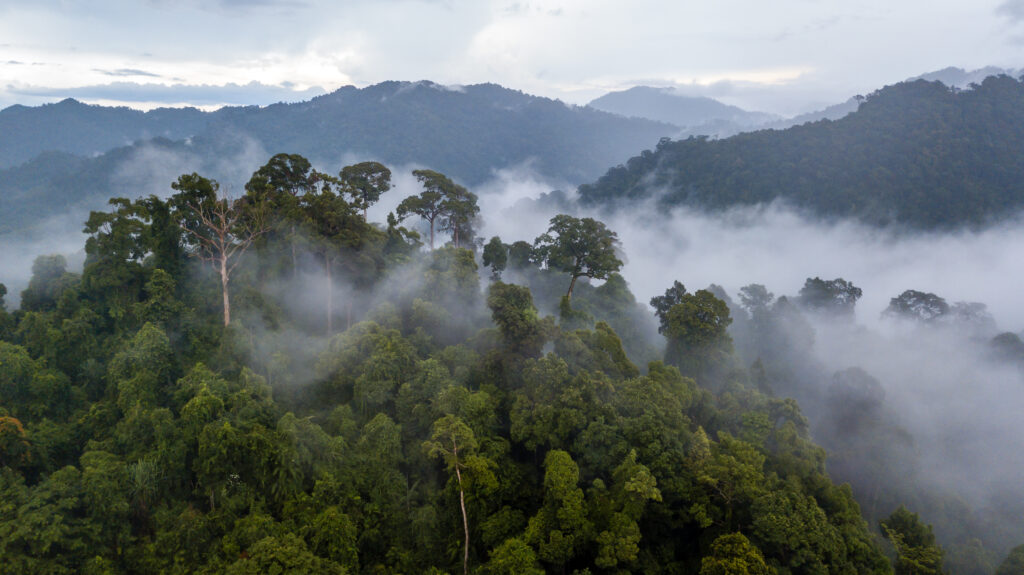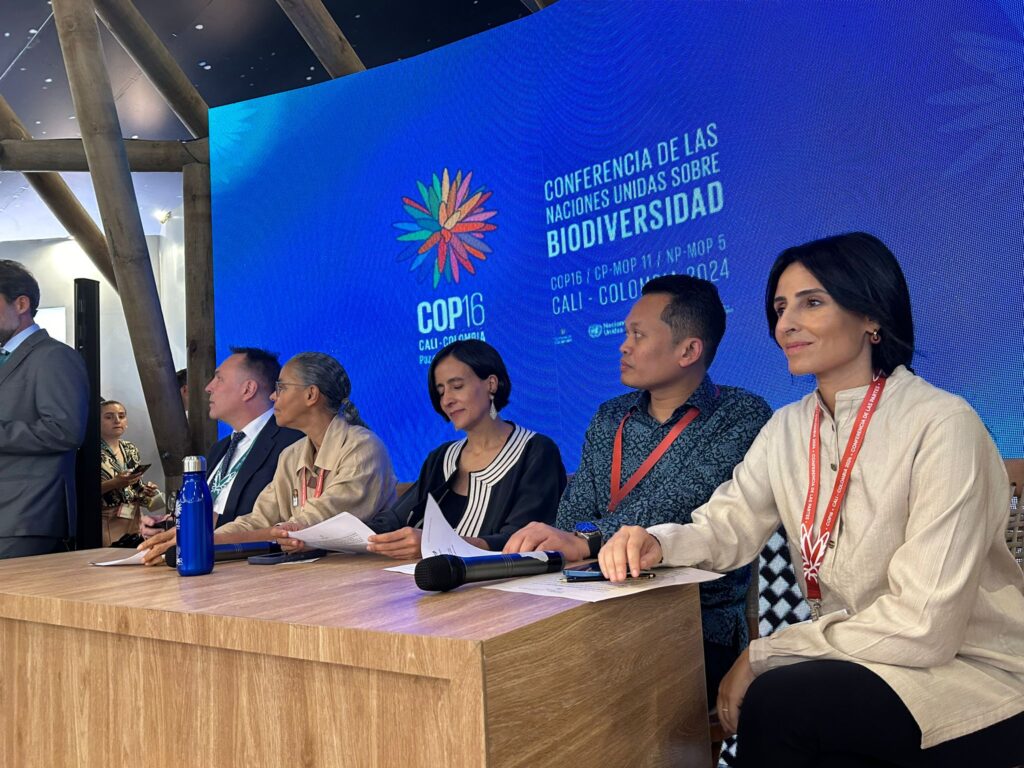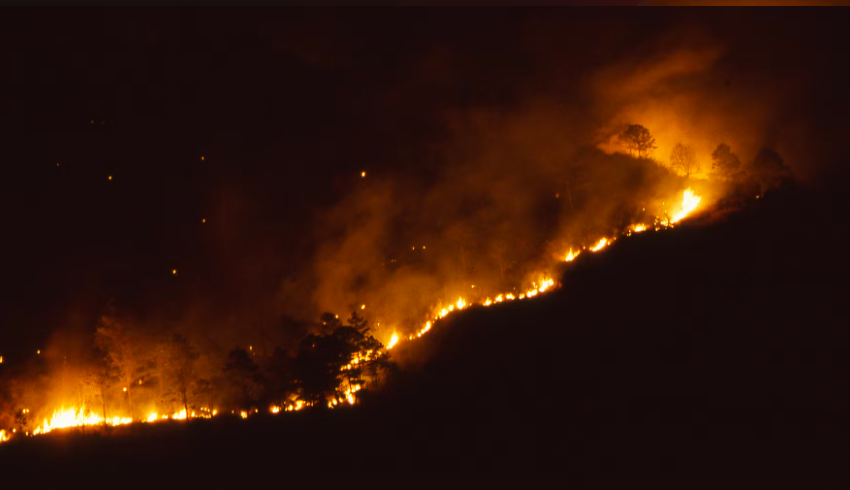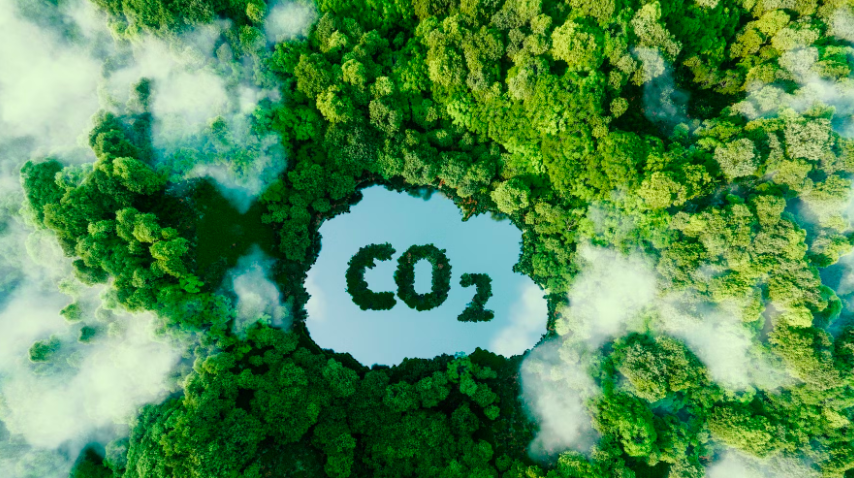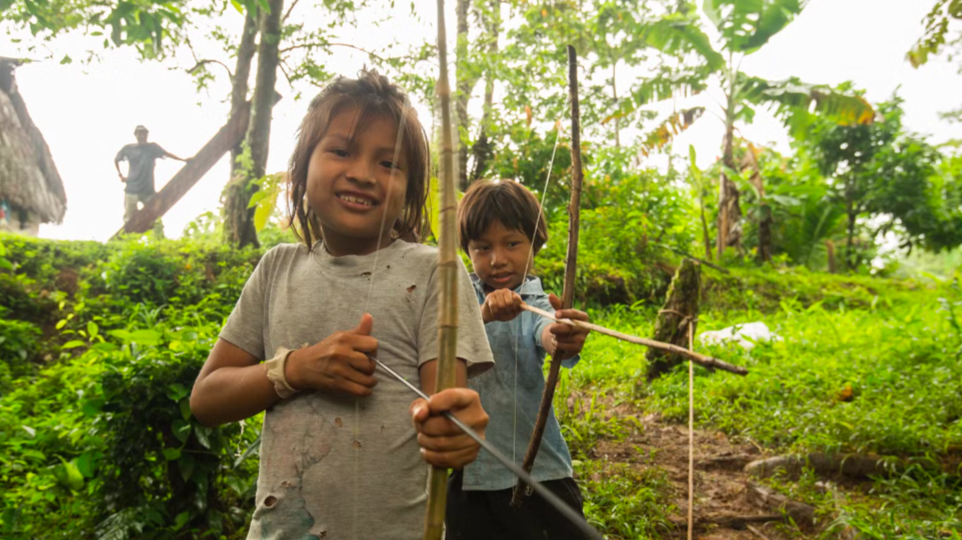
Indigenous Rights Saves the Forest
Human rights are increasingly being restricted worldwide. In Nicaragua, this applies not only to the most basic rights to expression and freedom but also to the collective rights of Indigenous Peoples to self-determination and their own territories, which poses a direct threat to the rainforest and its ecosystems.
The freedom to express oneself publicly is under pressure worldwide, and violations of citizens’ freedoms and the integrity of civil society are facing massive challenges. According to Civicus, an organisation working on citizen engagement and civil society worldwide, only three percent of the world’s population live in countries where governments respect freedom of expression and association. Meanwhile, the number of people living in repressive countries doubled in 2019 compared to the previous year. This development is reflected in everything from breaches of legislation to censorship, arrests, and harassment of journalists and protesters, as well as the use of excessive force. Restrictions and undermining apply to both individual human rights and collective rights, which refer to the rights people hold as members of an ethnic group or community.
In 2007, the UN General Assembly adopted a special declaration addressing the rights of Indigenous Peoples. The declaration recognises a broad range of fundamental human rights and freedoms for Indigenous Peoples globally, including the right to unrestricted self-determination and the inalienable right to ownership, use, and control of land, territories, and other natural resources.
Thirteen years after the adoption of the declaration, Indigenous Peoples worldwide remain under increasing pressure. They are being forcibly displaced from their habitats as states, corporations, and settlers illegally seize their lands without compensation or the required free, prior, and informed consultations and consent. In the worst cases, this results in killings when they resist the expropriation of their lands and natural resources.
Restrictions on Freedom in Nicaragua
Both Individual and Collective Human Rights Are Under Threat in Nicaragua. In Nicaragua, the situation has taken a worrying turn for both individual and collective human rights. Under the leadership of Daniel Ortega, the government routinely violates the rights of those perceived as opponents, including journalists, social leaders, and political prisoners. Arbitrary arrests, attacks on non-state actors, significant police militarisation, and suppression of the rights to freedom of assembly and expression occur systematically.
Civil society organisations in the country are also feeling the pressure. Many have been shut down, stripped of their assets, and barred from operating. Additionally, the government obstructs the return of international human rights organisations that could shine a light on the abuses of citizens’ rights. For instance, in May, an environmental organisation working on conservation reported that its forest areas had been invaded and taken over by the government. Following the December 2018 revocation of legal rights and confiscation of offices belonging to several NGOs, it has become increasingly difficult to work towards protecting the rainforest.
Illegal Invasions of Indigenous Peoples’ Territories
Nicaragua was one of the countries that originally voted for the UN Declaration on the Rights of Indigenous Peoples, which formally grants Indigenous Peoples the right to self-determination and autonomy. Nicaragua has also ratified ILO’s Convention 169 on Indigenous Peoples’ rights. However, there are increasing reports of illegal invasions of their territories, which threaten their livelihoods and, consequently, the forest and its high biodiversity habitat.
Indigenous leaders have expressed that they live under constant threat, and that authorities ignore reports and complaints from Indigenous Peoples about killings and kidnappings when their territories are invaded. Following another report of eight murders of Indigenous Peoples, there have been more than 40 murders of Indigenous Peoples since 2015, as of April this year. The primary cause of this development is attacks from illegal settlers, which have led to increased settlements, growing mining activities, and expansions of agriculture for cattle ranching and oil palms. “Most of the violence has been carried out by settlers attempting to force Indigenous Peoples off their ancestral homes and use their land for illegal logging and cattle farming,” said UN agency spokesperson Marta Hurtado in early February.
Poverty and Political Neglect Make Indigenous Peoples Vulnerable
Indigenous Peoples’ leaders are organised in territorial governments. As leaders, they are often subjected to immense pressure, especially an increased risk of political coercion. Nicaragua, with a population where 45% live in poverty, is one of the poorest countries in Latin America. Due to high poverty levels and often limited schooling, especially among Indigenous Peoples, they are more vulnerable to manipulation, which ultimately undermines the cohesion and resilience of their communities and their ability to protect the forests that are their livelihoods.
Moreover, the legislation that recognises the land rights of Indigenous Peoples is not enforced by the Nicaraguan government, leaving Indigenous Peoples with a difficult task: not only must they assert their rights, but they must also defend their territories. Often, the government collaborates instead with business interests through a stream of land grabbers, state interventions, and extraction industries, where officials and politicians behind companies selling illegal timber have financial interests that are prioritised over the rights of Indigenous Peoples.
Rights Sustain the Forest
In the Indio Maíz Biosphere Reserve, it is crucial that Indigenous Peoples have the capacity to claim their rights. The rainforest area is recognised on UNESCO’s World Heritage List of protected natural areas, largely due to the rare and endangered species that inhabit the region. Therefore, ensuring the solid implementation of Indigenous Peoples’ rights is vital in combating the destruction of the rainforest, especially since the territories of the Indigenous Rama-Kriol Peoples overlap approximately 80% of the Indio Maíz.
It is scientifically proven and acknowledged by organisations such as the UN Climate Panel that where Indigenous Peoples’ territorial rights are protected, both the forest and biodiversity are best safeguarded. Since Nicaragua is one of the countries with the fastest rate of rainforest deforestation, with forest cover having fallen from 76% in 1969 to 25% today, this has had significant consequences for both nature and the people who live in and depend on the rainforest.
In 2013, the government granted the Chinese company HKND the rights to build the world’s largest canal through Nicaragua, which will connect the Atlantic and Pacific Oceans. This will have devastating consequences for certain Indigenous Peoples’ territories and the rainforest as a unique ecosystem.
The population has not been consulted in relation to the canal law’s adoption, which directly violates human rights and international conventions on the right to consultation and self-determination. This is thus in direct conflict with both national law and the signed UN Declaration. It is estimated that the construction will lead to the clearing of 400,000 hectares of rainforest, representing a major threat to wildlife and biodiversity in the country.
Forests of the World Working with Rights
Since 1999, Forests of the World has been an active player in the fight for Indigenous Peoples’ rights, with a particular focus in recent years in Nicaragua on the process of land titling for forest conservation. This means the establishment and preservation of the right to territories and self-determination. Land titling is the final stage of the national Law 445, which was passed by parliament for Indigenous Peoples on the Caribbean coast. The law states that the government must support Indigenous Peoples in clarifying who may reside in their territories and under what conditions. This will effectively be a conflict resolution process, as it is already known that people are living in these territories who do not have the right to be there.
It is therefore crucial that Indigenous Peoples unite to put pressure on the government to enforce the law that determines who has permission to reside in the territories and to expel those who have illegally settled and are clearing rainforest for activities such as cattle ranching.
To strengthen Indigenous Peoples’ fight for their territorial rights and self-determination, it has been essential for Forests of the World’s work in the country to focus on what unites the people rather than what divides them. Despite the fact that Indigenous Peoples have a strong common denominator in being marginalized and stigmatized, they are often as diverse as citizens in Europe. Historically, there have also been conflicts between Indigenous Peoples, which can affect their relations today and make cooperation complex. Therefore, since 2014, Forests of the World has focused on helping them unite around common challenges, such as the lack of land titling. This has led to the creation of a national alliance between the seven Indigenous Peoples and two ethnic groups of African descent. The alliance is called APIAN, and it has slowly gained strength, becoming a voice for Indigenous Peoples and institutionalising itself with both a constitution and a logo. Forests of the World has supported the alliance by facilitating meetings with lawyers working on Indigenous Peoples’ rights and general assemblies where leaders from various territories are represented, aiming to give them a stronger voice in the fight for land titling and the protection of their territories, forests, and natural resources. Unions where marginalized groups unite are a key element in strengthening the freedom of expression that is collectively and individually threatened, both politically, socially, and economically. When the rainforest is cleared, numerous peoples and cultures risk disappearing, and it is therefore crucial that the declaration setting the standard for Indigenous Peoples’ rights is realised and enforced for one of the most vulnerable populations in the world.
Facts:
Around 10 percent of Nicaragua’s population is Indigenous, which amounts to approximately 775,000 people, one-third of whom live on the east coast near the Caribbean. The Indigenous population includes the Chorotega, Matagalpa, Sutiaba, Nahualt, Miskitu, Sumu-Mayangna, and Rama Peoples, as well as the Creoles/Criole and Garífuna.
Forests of the World in Nicaragua 1999-2020:
Forests of the World has been active in Nicaragua since 1999. At that time, the organisation began by supporting efforts to increase environmental awareness and education in villages and schools in the buffer zone of the Indio Maíz Reserve. The work evolved to include sustainable economic initiatives such as forest management, agroforestry, and tourism in and around the country’s largest and most biodiverse forests. Over time, as challenges related to illegal invasions of protected areas and Indigenous Peoples’ territories have increased, so has the collaboration with Indigenous Peoples. Defending territorial rights is not only a matter of cultural survival but also a fight for the survival of the rainforest. This rights struggle is sometimes fought at the risk of lives. The initiatives of Indigenous Peoples for rights and self-determination in the current context are motivated more by necessity than desire.
Press Contact
Jonas Schmidt Hansen
Who is Forests of the World?
We work to preserve the world’s forests, both in Denmark and the world’s tropical forests.Our focus areas include sustainability, Indigenous Peoples and local engagement.
